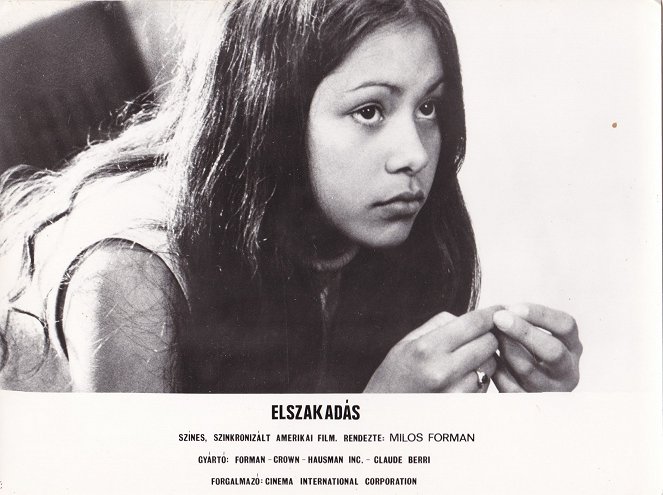Ohjaus:
Miloš FormanKuvaus:
Miroslav OndříčekNäyttelijät:
Lynn Carlin, Buck Henry, Georgia Engel, Tony Harvey, Audra Lindley, Paul Benedict, Vincent Schiavelli, Tina Turner, Philip Bruns, Allen Garfield (lisää)Juonikuvaukset(1)
Lämpimällä, tarkkanäköisellä ja loisteliaalla huumorilla Milos Forman kertoo 15-vuotiaasta tytöstä (Linnea Heacock), joka on karkumatkalla keski-ikäisiltä, keskiluokkaisilta – ja keskiaikaisilta vanhemmiltaan. Kaksi tavallista sielua, jotka tyttärensä silmissä ovat muukalaisia. Vakuuttuneina siitä, että tytär on muuttanut hippikommuuniin, vanhemmat hakeutuvat muiden samassa tilanteessa olevien, kadonneiden lasten vanhempien seuraan. Yhdessä he yrittävät asettua lastensa asemaan jäljittelemällä näiden elämäntyyliä. Pelonsekaisella innolla he kokeilevat marijuanaa, villiä tanssia ja räsypokkaa samalla kun heidän yhteiskuntakelpoisuutensa lentää taivaan tuuliin. Mutta mitä tapahtuu, kun huuma haihtuu? (Future film)
(lisää)Arvostelut (2)
The socio-cultural boom that hit America in the 1960s never particularly appealed to me, so the only film that I think fit best into that era was Forrest Gump. When I saw Miloš Forman's Hair earlier, the only thing that attracted me to it was its form. But you also can't say that about Taking Off. For me, it became just a one-and-a-half-hour-long narrative about family conflicts, running away from home, parental narrow-mindedness, and exemplary marijuana smoking. Throughout the entire film, I was just watching something with an apathetic expression that didn't interest me at all and was boring overall. I'm surprised that I didn't turn it off. To fully appreciate the film, perhaps a greater understanding of certain "cultural values" and "social rules" is needed. But no matter how hard I try, I can't find that understanding. Maybe I should grow up.
()
Milos Forman moved across Western Europe to the United States and did there what he did best in Czechoslovakia. He filmed people. He first studied them and then captured precisely the right moments that will look good on the screen and make you think. Although the scene with a joint is probably the most memorable, there are many other memorable scenes that examine the American society of that time.
()

